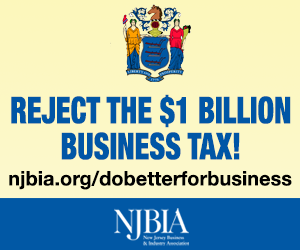The Council for Social Justice NJ Announces Black History Month Essay Contest 2023 Winner
FOR IMMEDIATE RELEASE
The Council for Social Justice NJ Announces Black History Month Essay Contest 2023 Winner
The contest challenged high school students to reflect on diversity and racial injustice.
(Somerset, NJ, 2/28/2023) – The New Jersey chapter of the Council for Social Justice, (CSJ NJ) today is pleased to announce the winner of the 2023 statewide Black History Month Essay Contest.
High school students were asked to write 600 words or less on one of the following topics:
Combating racial injustice in the age of social media
What does Islam teach us about racial discrimination?
The impact of racism on the well-being of a community
Combating racial injustice in the schools
Combating racism while maintaining diverse cultural identities
After careful review of all submitted essays, our panel of judges announced the following winners:
Grades 9 & 10
1st prize: Ziyad Nagarwala of Princeton Junction, NJ
2nd prize: Marib Saeed of Jersey City, NJ
3rd prize: Raaida Naser of Somerset, NJ
Grades 11 & 12
1st prize: Imaad Siddiqui of Princeton, NJ
2nd prize: Alisha Noor Chaudhry of Princeton, NJ
3rd prize: Muhammad Siddiqui of Piscataway, NJ
First prize winners in both age groups will receive a new tablet. Second and third prize winners will receive $200 and $100 gift cards respectively.
The essay judged to be Best Overall is included below.
All winning essays can be found here: https://www.icnanj.org/csj/winners/
The Council for Social Justice, a project of The Islamic Circle of North America (ICNA), is a social justice/human rights organization that strives to systematically facilitate the human struggle for the rights of the poor and oppressed in the United States. See: icnacsj.org. ICNA is a leading American Muslim organization, dedicated to the betterment of society through the promotion of Islamic values. Since 1968, ICNA has worked to build relations between communities by devoting itself to education, outreach, social services and relief efforts. See icna.org.
– END –
Judged Overall Best Essay
Topic: Combating racial injustice in the age of social media
Title: The Intention of Innovation: How Social Media Intersects with Racial Justice
By: Imaad Siddiqui of Princeton, NJ
As developments in communication parallel human evolution, they both complement and hinder the social movements that have become instrumental to such evolution. Although racial justice movements are centuries old, developments in communication such as social media only arose in the past few decades. This innovation forced age-old rhetoric to adapt to the modern era as future generations rapidly developed a dependence on social media. Now, in a world driven by social media, the question arises: has a shift toward more publicly available and accessible forms of communication had a positive or negative effect on racial justice? The rise of social media has given way to both developments and regressions in racial justice, making this question difficult to answer.
On one hand, social media has allowed a new age of awareness to combat racial injustice, as it allows for perspectives and anecdotes from minorities across the world. On platforms such as Twitter and Instagram, countless students present the racial injustices that they face on a daily basis, including cultural appropriation or hate crimes. (Peña) The Instagram account “@dearpwi” addresses its content directly to “predominantly white institutions” and spreads awareness of racial injustice on college campuses. Social media also displays its virtue in the promotion of entire movements such as the opposition to racially-motivated police brutality. In 2014, this was illustrated in the wake of the murder of Eric Gardner by police in New York. A study from the Center for Media & Social Impact (CMSI) showed that Twitter was instrumental in spreading awareness and organizing protests. (qtd. in Auxier). The freedom provided on social media platforms creates the perfect environment for organizing movements as they unite individual minority voices through their collective experiences of racial injustice. However, social media platforms are far from a monolith, and the positives of social media cannot be evaluated without considering its negatives.
Although the freedom of social media can be helpful for social justice causes, it may also yield the opposite effect. Elon Musk’s recent acquisition of Twitter sent ripples across the platform, bringing forth a wave of racial injustice. Experts at the Office of the UN High Commissioner for Human Rights reported that “the use of the hateful and racist ‘N’ word on the platform increased by almost 500 percent…” (Namakula, et al.) Musk’s “free speech” advocacy combined with online anonymity created an avenue of hate against minority groups without any accountability. Not only that, but the epidemic of racial injustice online has also spread to powerful political figures. Donald Trump, during the COVID-19 pandemic, referred to the disease as “the Chinese Virus,” promoting rhetoric that led to a 150% increase in Anti-Asian violence in 2020. (qtd. in Brown, et al; Yam) As harmful speech rises from all sides on social media, it becomes difficult to declare it as a helpful tool against racial injustice. So, the question remains, is social media’s impact on social justice movements positive or negative impact? That question may ultimately not have a clear answer. Striking a balance between the positive and negative effects of social media on racial justice requires the understanding that social media is a tool shaped by its user’s intentions. The Prophet Muhammad (S) once said that “actions are according to intentions, and everyone will get what was intended.” (An-Nawawi) With the powers of freedom and anonymity that social media provides, its impact will ultimately be decided by the user’s purpose. As some make it their intention to spread injustice, the opposite intention must remain alive, to promote the online world as one that stands against racial injustice.
ICNA Council for Social Justice
1320 Hamilton Street, Somerset
New Jersey 08873 United States







